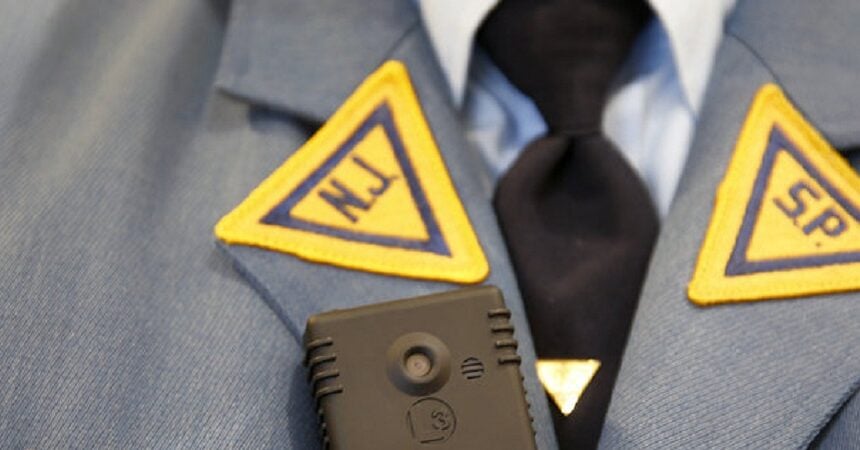“The thing about audio and video is they don’t lie. Obviously, people can interpret them, but audio and video recordings are as neutral as you can get. Those are the best records to have public,” said NJFOG president Walter Luers. NJ bill S788 proposes to make all police videos and 911 calls and transcripts exempt from OPRA. It is our view that this bill is unnecessary because OPRA already protects any person’s reasonable expectation of privacy in any document. This bill would make such audio and video non-public, even if no person has a reasonable expectation of privacy in the contents. -NJFOG
NJ Advance Media for NJ.com
January 19, 2016
By S.P. Sullivan
TRENTON — A bill before the state Legislature would cut public access to police video and audio recordings in New Jersey, making them accessible only by law enforcement or through a court order.
The measure (S788) would create an exemption to New Jersey’s Open Public Records Act for “law enforcement camera recordings” as well as 911 calls and transcripts.
Its introduction comes as police departments across the state are implementing body camera programs amid a national climate of scrutiny of law enforcement practices spurred by high-profile police shootings. By the end of this year, as many as 280 departments in New Jersey could be using the technology, according to the state Attorney General’s Office.
But whether the recordings made by body-worn cameras should be public record remains an open question. The bill’s sponsor, state Senate Deputy Majority Leader Paul Sarlo, said the legislation is intended to protect private citizens caught on camera at their “worst moment.”
“(Police are) entering a home after a potential domestic violence case, entering a home after somebody has reported a sexual assault,” Sarlo (D-Bergen) told NJ Advance Media. “I’m not so sure that it’s in the interest of everyone to see those photos on the front page of a publication.”
Open records advocates, citing recent court rulings, say public access to police video is already too strictly limited, and that disclosure of these recordings holds the government accountable.
“The thing about audio and video is they don’t lie,” said Walter Luers, president of the New Jersey Foundation for Open Government. “Obviously, people can interpret them, but audio and video recordings are as neutral as you can get. Those are the best records to have public.”
N.J. court blocks cops’ dashboard videos, many reports from public release
While body cameras are considered a new frontier in public records fights, the bill would roll back access to 911 calls, which have long been considered public records in New Jersey and across the U.S.
Media organizations, including NJ Advance Media, frequently publish 911 calls from newsworthy events, a practice some see as invasive and disrespectful to victims.
Sarlo cited the example of a Midland Park woman who was brutally murdered in her own driveway as the type of person the bill seeks to protect. In that case, news organizations published a recording of a 911 call made by the woman’s friend.
“My thoughts are really for victims — and their families as well,” he said.
Some states — including Pennsylvania, Alabama and Ohio — already exclude 911 calls from their records laws. Others do not explicitly address them in their statutes, leaving their status as public records open to interpretation, according to the National Conference of State Legislatures.
The bill as written would further exempt all police audio and video recordings from OPRA, meaning they could only be made public through a court order, lawsuit or other legal action. In most cases, Luers said, that would leave it up to police to decide when to release footage to the media or the public.
“And they’re only going to release the videos that make them look good,” he said.
Sarlo said the legislation seeks to “codify what existing court rulings have said,” referring to an appeals court decision last year that found dashboard videos and other records considered part of a criminal investigation could be withheld from the public.
That decision was in response to a lawsuit filed by North Jersey Media Group, which was seeking records related to a fatal police shooting in Lyndhurst. The state Supreme Court agreed in December to review the case.
Sarlo’s bill was introduced Jan. 12 and is awaiting a hearing in the Senate Law and Public Safety Committee. He said he would consider amending the bill to “allow the public access if there’s outcry of impropriety” on part of police.
—–
The article is online HERE and also re-posted above.
—–
RELATED EDITORIAL:
January 24, 2016
NorthJersey.com
Body cameras, 911 calls and OPRA
RELATED OPINION PIECE:
January 24, 2016
NorthJersey.com
Sarlo bill an attempt to rob the innocent of protection
RELATED EDITORIAL:
January 28, 2016
NorthJersey.com
Bloomfield editorial: Transparency – This editorial reminds us of the recent case where an accused facing five years in prison, Marcus Jeter, was vindicated following the release of the police dash cam video.
RELATED POSTS:
https://njfog.org/2015/12/16/nj-supreme-court-to-hear-case-that-cut-access-to-police-records/
https://njfog.org/2016/02/01/dog-attack-dash-cam-video-on-the-docket/

